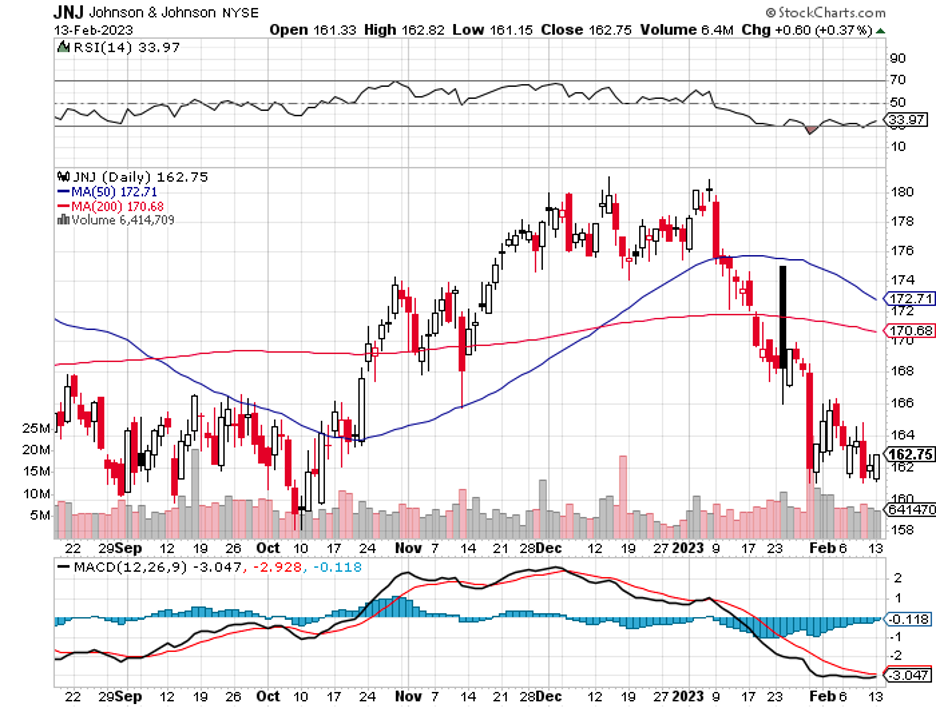Better Safe Than Sorry
The market has been unstable but upbeat this year as a mix of optimistic investor sentiment and nagging concerns about the global economy has troubled investors. This is why investing in businesses on a long-term basis appears to be the trend these days.
After all, doing so makes it easier to get past near-term issues and enables investors to focus on excellent companies that can deliver significant returns in the course of more extended periods.
With these in mind, Johnson & Johnson (JNJ) emerges as one of the stable stocks worth consideration not only in the field of biotechnology and healthcare but also across the broader market.
JNJ is one of the biggest healthcare companies across the globe, and it will soon be split into two distinct entities. This spinoff is projected to be completed by November 2023, with both companies being publicly traded and aiming to pay out dividends.
A spinoff is in the works, with the company’s consumer health business turning into a new company named Kenvue. At the same time, its pharmaceutical and medical device sectors will continue under the central umbrella of JNJ.
The company’s consumer health segment historically records moderate growth, which fails to keep up with the more rapid growth experienced by its medical devices and pharmaceutical sectors.
In 2022, JNJ reported its total sales to be $95 billion, which was 1.3% higher than in 2021, with net earnings worth $18 billion. Broken down by division, the operational sales of consumer health climbed by 4%, while the pharmaceutical sector rose by 7%, and the medical devices sector increased by 6% compared to the prior year.
These results are somewhat expected considering the maturity of the consumer health segment along with the profit margins for the products in its portfolio. Nevertheless, having brands like Benadryl, Tylenol, Listerine, and Motrin would undoubtedly boost the consumer health arsenal. These widely known brands would enable this segment to sustain its growth, translating to stable ongoing gains over the long run.
JNJ’s move to buy Abiomed, the developer of the world-famous smallest heart pump, bolstered the company’s medical device sector.
Meanwhile, the company estimates its pharmaceutical sector to reach $60 billion in terms of revenue by 2025 courtesy of top-selling treatments such as cancer drug Erleada and Darzalex and plaque psoriasis medication Tremfya. In addition to the company’s robust pipeline, these projections propel JNJ’s top line forward.
Recently, JNJ increased its investment in biotech stock MeiraGTX (MGTX), lifting its stake from 3.7 million to 6.6 million shares. The two companies have been working together on the central nervous system, salivary glands, and eye treatments since 2019, with JNJ being the second-largest shareholder in this clinical-stage gene-therapy firm.
While its 2022 figures do not seem to be as impressive as others in the sector, it’s nothing to sneeze at either. In fact, it should be appreciated in the context of the longevity of JNJ’s business as well as the company’s long-established ability to continue delivering moderately-paced growth. Reviewing the last five years of JNJ, the business has grown its top and bottom line by approximately 17%.
The sheer size of JNJ and its leadership across practically all critical healthcare sectors ensured solid business and shareholder returns in the past years.
Over the last 10 years, this top-tier stock has delivered a total return of 190% for its shareholders. Meanwhile, its dividend, which the company has boosted for 60 consecutive years and counting, has climbed by 90%. Hence, investors on the lookout for a resilient company to buy and hold for a long time would be hard-pressed to find a more stable stock than JNJ.

